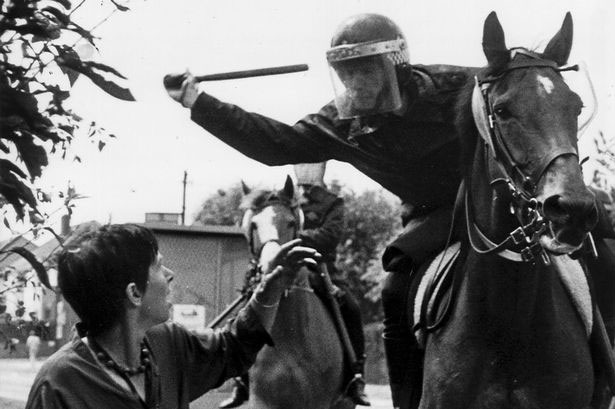
The last 18 years have seen an unprecedented attack on the trade unions, with no less than seven laws being passed restricting their right to organise:
– 1980: Secondary picketing made unlawful
– 1982: Unions made responsible for unlawful industrial action, with possible sequestration of their funds as a consequence
– 1984: Industrial action made unlawful without a secret ballot
– 1988: Industrial action to enforce union membership made unlawful
– Separate ballots now required for each workplace involved in an action
– Action by unions against scabs made unlawful
– 1990: All secondary industrial action made unlawful
– Unions now financially liable for unlawful industrial action called by any union official or body
– Dismissal of employees taking part in unofficial action is now permitted (eg the Liverpool dockers)
– 1992: Existing laws consolidated
– 1993: Seven days’ notice required for all industrial action
None of this will be changed under Labour, as Tony Blair recently boasted: ‘There is no return under our proposals to the legislation of the 1970s – no secondary action, no secondary picketing, flying picketing, no return to the days of strikes without ballots or the days when union leaders didn’t have to be elected by ballots. Even after every change we are proposing, Britain would remain with a more restricted trade union legislative framework than any country in the Western world.’
Trade unions today are little more than company unions, which organise the middle class and exclude the mass of the working class. Forty per cent of their seven million members are managerial, professional or associate professional workers; less than two per cent are under the age of 20. Even where unions have substantial numbers of low paid workers, for example Unison, it is the better-off managerial staff who generally run the branches, and whose interests the union protects. Thus it was that the Hillingdon strikers had to occupy Unison offices to secure recognition of their strike, and then found themselves left high and dry when Unison found them an embarrassment near the General Election.
FIGHT RACISM! FIGHT IMPERIALISM! 136 ELECTION SPECIAL APRIL/MAY 1997




